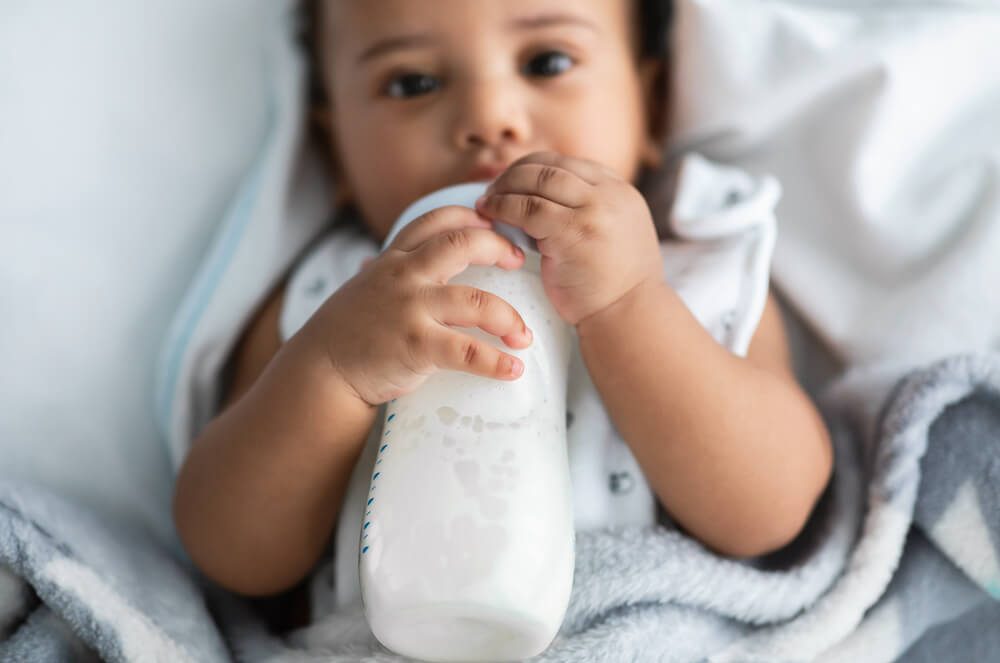You might be wondering: can babies drink cold formula? Keep reading to find out the answer, and some other frequently asked questions related to this topic.
As a parent, you always want to ensure that your baby receives the best care and nutrition possible. One of the most critical aspects of your baby’s health is the food they consume, especially when it comes to formula feeding.
Whether you are a new parent or have experience in caring for infants, you may wonder if it is safe for babies to drink cold formula. In this article, we will explore the topic of cold formula feeding and answer some common concerns related to the topic.
Can babies drink cold formula?
Yes, it is safe for babies to drink cold formula. The temperature of the formula does not affect its nutritional value. Some babies even prefer cold formula, while others may like it warmed up. It is essential to remember that formula feeding is a personal choice, and what works for one baby may not work for another.
However, it is important to note that cold formula may cause discomfort to some babies, especially those who are used to warm milk. If your baby is used to warm formula, you can gradually decrease the temperature to room temperature, and then to cold, to help them adjust to the change.
How to prepare infant formula safely and effectively
When preparing formula for your baby, it is crucial to follow the manufacturer’s instructions carefully. These are the main aspects to consider when preparing formula:
- Water Quality: Always use safe and clean water to prepare your baby’s formula. You can use tap water if it is safe and has been tested, but it’s a lot safer to use bottled water labeled specifically for infants. If you are unsure about the safety of your tap water, consider boiling it for one minute and letting it cool before using it to prepare the formula.
- Hygiene: Clean your hands and all the utensils thoroughly with soap and water before preparing the formula. Also, make sure that the bottles and nipples are sterilized before each use.
- Formula Mixing: Measure and mix the formula accurately according to the instructions provided by the manufacturer. Make sure the ingredients are well incorporated and do not add extra water or formula as it can affect the nutritional balance of the formula.
- Storage: Store the formula in a cool, dry place. Once you have prepared the formula, it should be consumed immediately or stored in the refrigerator for up to 24 hours.
- Feeding: Always check the temperature of the formula before feeding your baby. You can test the temperature by dropping a little bit on the inside of your wrist to make sure it is not too hot or too cold.
Considerations when warming baby formula
While it is safe to warm up the formula for your baby, it is essential to avoid overheating it. Overheated milk can cause burns to your baby’s mouth and throat. It can also damage the nutritional content of the formula.
To avoid overheating the milk, you can warm the formula by placing the bottle in a bowl of warm water for a few minutes. Alternatively, you can use a bottle warmer to heat the milk, but make sure to follow the instructions carefully and check the temperature before feeding.
Also, it’s important to never reheat milk that has already been warmed up. This is because bacteria can start to grow in the milk once it has been heated. It’s always best to prepare a fresh bottle of milk each time your baby needs a feeding.
Can I store formula?
Once you have prepared the formula, it can be stored in the refrigerator for up to 24 hours. It is important to store the formula in a clean container with a lid, and label it with the date and time of preparation. Do not freeze the formula, as it can damage the nutritional content and consistency of the formula.
If your baby does not finish the formula within two hours of feeding, discard the remaining formula. Bacteria can grow rapidly in leftover formula, which can cause illnesses.
By following these guidelines, you can prepare a safe and nutritious formula for your baby. Remember to always check the manufacturer’s instructions, use clean water, and keep all equipment clean and sterilized to minimize the risk of infection. Additionally, if you have any concerns about your baby’s health or feeding habits, consult with your pediatrician for advice.
For more guidance on your baby’s feeding, be sure to download our app and access classes led by experts in nutrition, introduction to solids and other relevant topics for parents.







